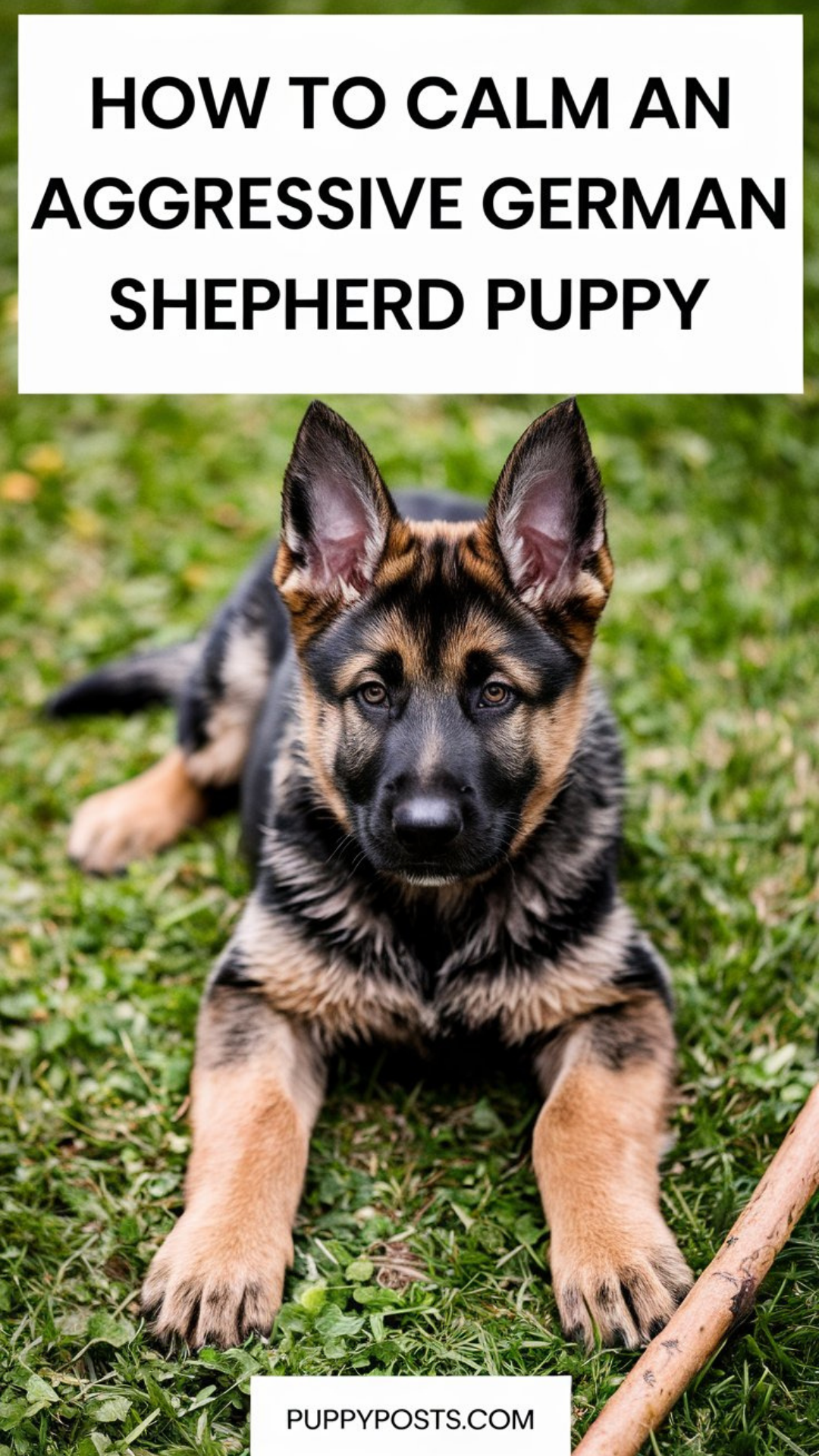How to calm an aggressive German Shepherd puppy
I’m a veterinarian with over 10 years of experience running a sanctuary for stray dogs and cats here in New Jersey. German Shepherd puppies come with a lot of energy, curiosity, and yes, sometimes aggression. But make no mistake—puppy aggression isn’t something you ignore or just hope will go away. You handle it with firm, consistent training and calm leadership. Here’s the no-nonsense approach to calming an aggressive German Shepherd puppy.

1. Recognize That Puppy Aggression Is Serious but Manageable
Aggression in a puppy isn’t “cute” or “just a phase.” It signals frustration, fear, or lack of boundaries. Left unchecked, it becomes a serious problem.
Watch for signs like:
- Growling or snapping during play
- Biting harder than normal mouthing
- Stiff body posture or intense staring
Identify these early and act fast.
2. Set Clear Rules from Day One
Your puppy needs to understand what’s acceptable and what’s not.
How to set rules:
- Use simple commands like “No,” “Leave it,” and “Sit” consistently
- Interrupt aggressive behavior immediately and redirect to positive activity
- Reward calm, gentle behavior with treats and praise
No mixed messages. Be firm and consistent.
3. Socialize Your Puppy the Right Way—Slow and Steady
Aggression often comes from fear or lack of social skills. Socialization helps your puppy feel comfortable with people, dogs, and new situations.
Keep it positive by:
- Introducing new experiences gradually and calmly
- Avoiding overwhelming your puppy with too many stimuli at once
- Rewarding brave and calm behavior generously
Build confidence; don’t push fear.
4. Channel Energy with Exercise and Mental Stimulation
A frustrated puppy is an aggressive puppy. You need to burn off that excess energy before it turns into trouble.
Tips:
- Provide frequent, short play sessions and walks appropriate for their age
- Use puzzle toys and training games to tire their mind
- Avoid rough play that encourages biting or dominance
Tired puppies behave better.
5. Use Positive Reinforcement, Not Punishment
Harsh punishment makes aggression worse by increasing fear and anxiety.
Focus on:
- Rewarding good behavior immediately
- Redirecting bad behavior to an acceptable alternative
- Staying calm and patient during setbacks
Build trust, not fear.
6. Teach Bite Inhibition Early
German Shepherd puppies naturally mouth and bite. Teach them what’s too hard.
How to train bite inhibition:
- Yell “Ouch!” or stop play when they bite too hard
- Withdraw attention briefly to show biting ends fun
- Praise gentle mouthing and licking
This teaches your puppy self-control.
7. Stay Calm and Consistent—Your Energy Sets the Tone
Puppies pick up on your emotions. If you’re stressed or angry, they get worse.
Be a calm leader by:
- Speaking softly but firmly
- Using slow, deliberate movements
- Avoiding yelling or physical punishment
Your calmness helps your puppy settle down.
8. Seek Professional Help When Needed
Some aggressive behaviors need expert guidance.
Call a pro if:
- Your puppy’s aggression escalates despite your efforts
- They show biting that risks injury
- You feel overwhelmed or unsafe
A certified trainer or behaviorist can provide personalized help.
Final Word: Calming an Aggressive German Shepherd Puppy Demands Firm, Patient Leadership
German Shepherd puppies are smart, powerful, and driven. When aggression shows up, it’s your responsibility to act fast and firm. Set clear rules, use positive training, socialize carefully, and keep your cool. Here in New Jersey, we handle problems head-on—with patience and authority. Do the work now, and you’ll build a confident, balanced dog who’s a joy to have by your side.
No excuses. No delays. Just solid, steady leadership.







